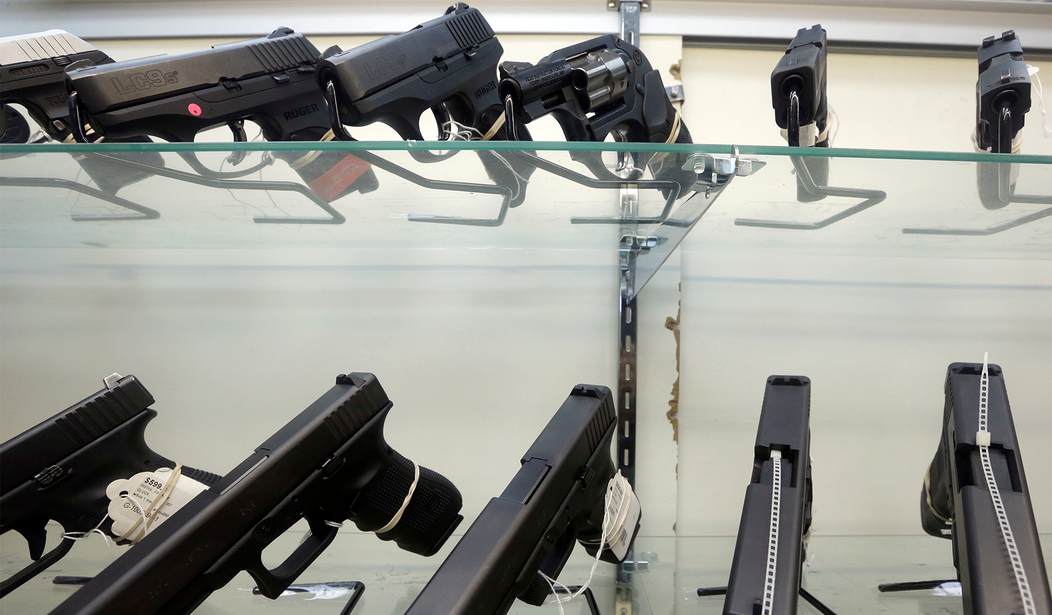On Saturday, I talked about how the terrorist attack in Moscow undermines much of gun control advocates' arguments about the efficacy of such laws. After all, this is the line pushed by a lot of anti-gun activists, that we can prevent such shootings.
Yet most aren't speaking definitively, really. They pretend that each individual shooting could have been prevented, but they always couch their words just slightly.
Over at Ammoland, Dave Workman notes this trend as well. He's got a piece originally from The Hill that he takes issue with just how disingenuous anti-gunners can be with that language.
Two sentences in the second paragraph of an Op-Ed in The Hill about gun control failures relating to the recent trials of James and Jennifer Crumbley—parents of Michigan school killer Ethan Crumbley—perhaps best illustrate the vacuum of logic within the gun control movement, guaranteeing that whatever restrictive laws anti-gunners adopt, they will always fall short.
Writing about the passage of the Public Act of 2023 in Michigan, Prof. Kimberly Wehle, University of Baltimore School of Law, asserts, “If that law had been in place in 2021, 15-year-old [killer's name redacted by Bearing Arms] might never have attempted the shootings because his parents — despite their shortcomings — may have complied with state law. Instead, they were found criminally liable for not imposing in their own home the very restrictions on gun access that Michigan lawmakers had neglected to enact.”
“If” is often called the “biggest word in the English language.” “Might” comes in a close second, probably in a tie with “may.” The sentence illustrates just how wrong—and perhaps wrong-headed—gun control proponents are about pushing restrictive laws and regulations, expecting people most likely to violate or merely ignore the law to suddenly comply. There is no reliable evidence of that ever happening in the history of mankind, dating from the slaying of Abel by his older brother, Cain, to the present.
Long story short, regardless of the number of times it is repeated, gun control proponents refuse to accept the reality that criminals and stubborn, stupid people do not obey every gun law. Indeed, they disobey most or all of them, figuring to not get caught. Based on what she wrote and how it is written, Wehle is an intelligent person with an interesting argument. She just happens to be mistaken.
The elder Crumbleys knew their son had behavior and emotional problems, but they bought him a 9mm handgun anyway, which he had in his backpack the day of the shooting in late 2021 at Oxford High School. Earlier in the day, when there was an opportunity to take the kid home, or at least check the contents of his backpack when he was in the school administration office, nobody did that, which pretty much underscores Prof. Wehle’s allusion to their “shortcomings.” A detailed examination of the family situation is found in the March 15 edition of New York magazine’s Intelligencer.
The Crumbleys dropped the ball at pretty much every level. Why would anyone with even half a brain cell believe that a mandatory storage law would have prompted two clearly irresponsible parents to secure a gun when there was no barrier to them doing so as it was?
Oh, it's certainly possible that they might have complied with the law, but it's unlikely. First, one would have to assume they knew about the law, something that's far from guaranteed.
Right now, a lot of people in Michigan know about the mandatory storage law. A lot more don't follow politics and don't retain information about gun control laws because, as of right now, they don't have a gun. When they do, they probably aren't all going to look up whether they're required to store a firearm when not in use.
And all that assumes they care.
The Crumbleys bought their kid--a boy who was very mentally disturbed kid who all but cried out for help--a firearm. Not some little .22 rifle like most kids might get, but a 9mm Sig Sauer handgun. Maybe it's just me, but it seems unlikely that they'd have bothered to look up relevant state laws, even if they'd been unfamiliar.
Yet the language here isn't unusual. That's how all such gun control laws are framed, particularly in the aftermath of a horrific incident. It's would, should, could.
But the truth of the matter is that when Michigan's mandatory storage fails to stop another mass murder, these same people won't critically examine why the law didn't work, they'll just step up and start demanding more and more restrictions.
The laws could have stopped the killer but didn't.
Just like how the laws against what happened with the Crumbleys failed to stop them. Just like the laws that are meant to stop all of them failed.
But there's a flip side to the "if" and "might" aspects of the debate.
If a teacher had been armed, they might have been able to stop any of this from happening. It might have been nothing but a story about a kid who brought a gun to school, pulled it, and the teacher pulled one in return; a local story we'd pick up if we learned about it, but otherwise, not a major story.
Funny how often those "might" and "ifs" get left out.








Join the conversation as a VIP Member